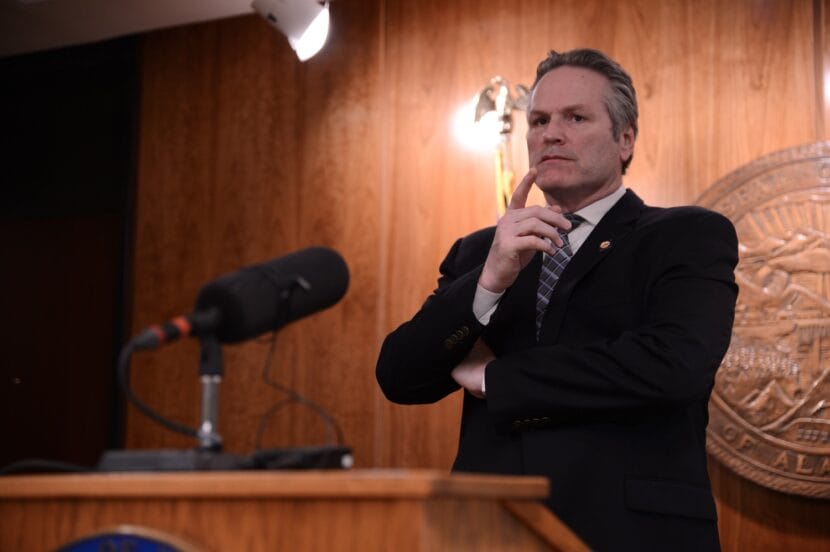With just a day left until the veto deadline in a wide-ranging education bill that contains the first significant increase to the state’s school funding formula in years, Alaska lawmakers and Gov. Mike Dunleavy have not reached an agreement.
Legislators would convene for a joint session to consider an override as soon as next Monday if the governor vetoes the education bill on Thursday, legislative leaders said on Wednesday.
Sen. Bill Wielechowski, D-Anchorage, said he had good meetings with the governor on Monday and Tuesday nights, but there has been no agreement and he doesn’t know what will happen tomorrow.
“I think we’re actually pretty close. But the sticking point is charter schools and state control versus local control. And for our caucus, that’s really been a nonstarter,” he said.
Senate President Gary Stevens, R-Kodiak, said the governor’s attempt to move control of charter schools under the state school board and away from local districts is one of the biggest issues the caucus has with the administration. Dunleavy has also cited a teacher bonus incentive bill and issues with funding related to reading as reasons for a potential veto.
“I really think that the best decisions are made as close to the kids and the parents and the schools, rather than rather than in a statewide administration. So I do believe in local control. I think that that works best in education,” Stevens said.
Sen. Löki Tobin, D-Anchorage and chair of the Senate Education Committee, said basic school funding would benefit charter schools. She said a lack of funding has at least one district considering closing a charter school for cost savings. “The Nome public charter school has been in existence for over 25 years, and it would be a travesty to see their doors close,” she said.
Wielechowski and Stevens pointed out equity issues with charters, such as districts paying more to help them with administrative tasks, and said that policy to increase access to them needs more consideration.
Lawmakers overwhelmingly approved the education bill, Senate Bill 140, and could override a potential veto if all legislators voted the same way. The combined vote on the bill was 56-3, and only 40 votes of 60 would be needed for an override. A few legislators who voted for the bill have indicated they may support a gubernatorial veto.
The bill would become law without Dunleavy’s signature if he takes no action this week, but even if that were to happen, he could veto funding for the bill when he is presented with the budget later this year.






